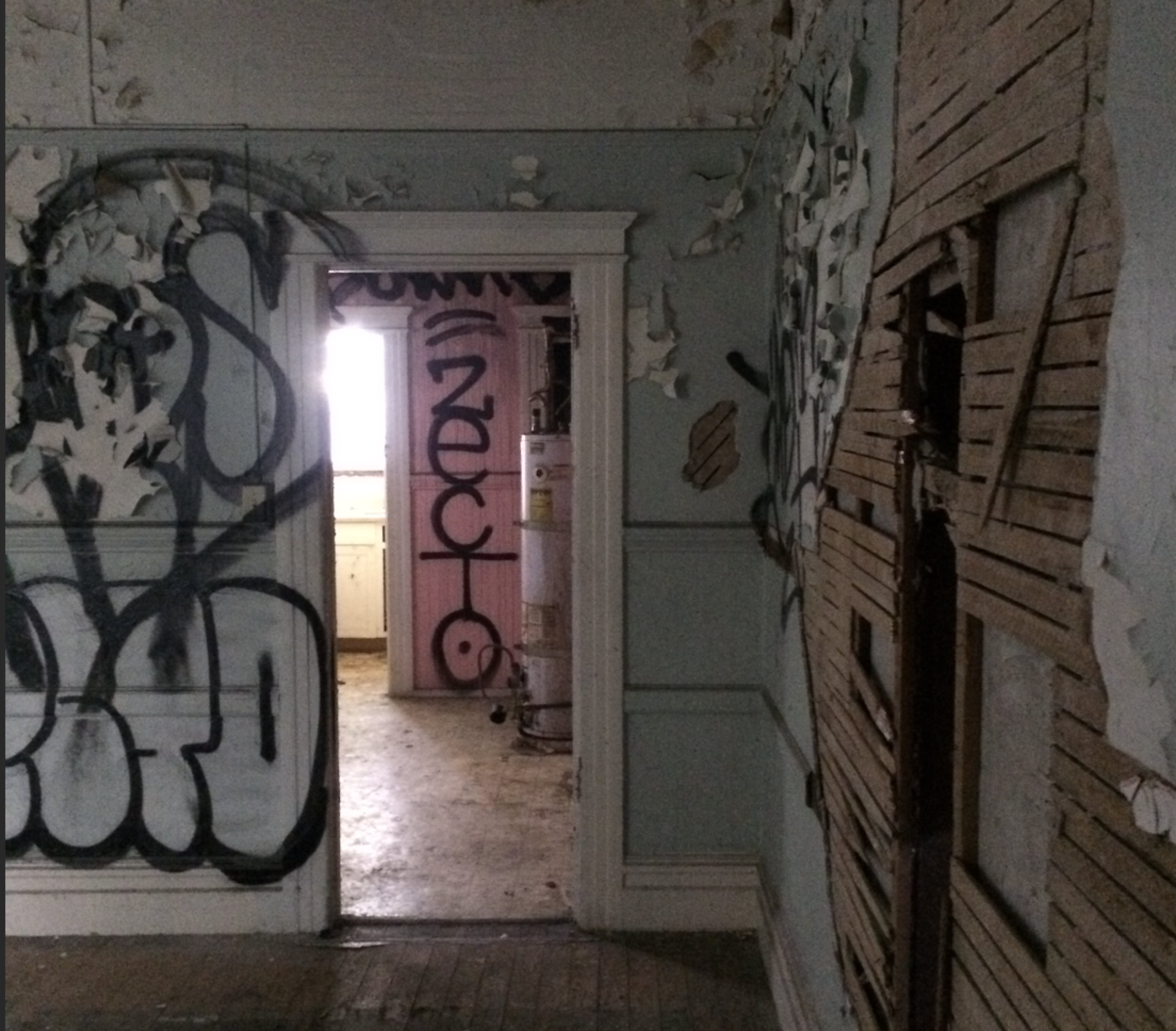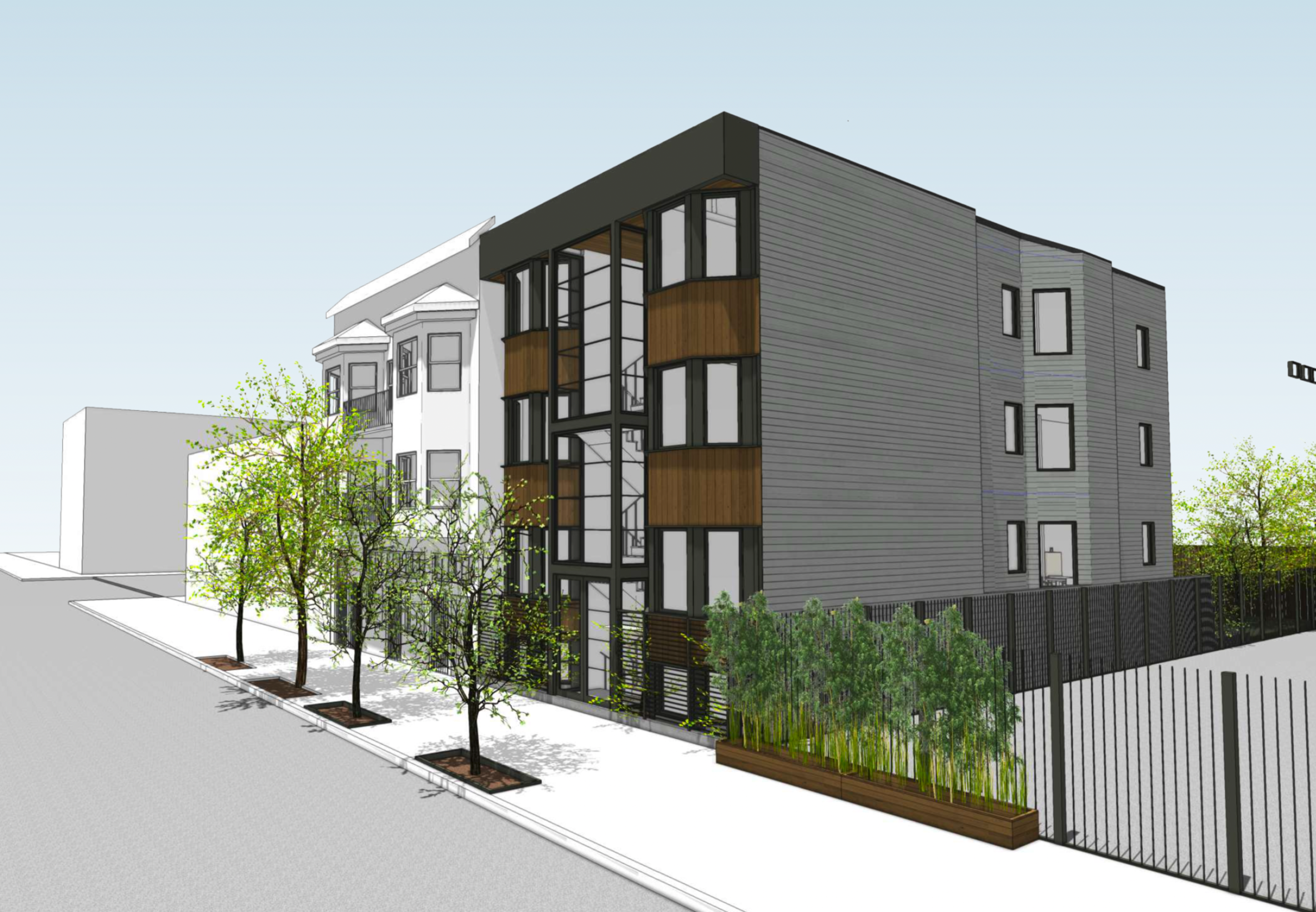A burned-out San Francisco apartment building has sat empty as a crumbling eyesore for nearly a decade, despite a perennial housing crisis in the city.
Crammed between Poc-Chuc restaurant and a charging station packed with Cruise robotaxis (opens in new tab), the six-unit apartment building was badly damaged in a 2015 fire (opens in new tab), displacing all 21 tenants.
“It looks pretty terrible,” San Francisco resident Kyle Huey said as he walked past the fire-damaged, graffiti-covered building. “I’m surprised it’s still standing.”
Huey’s partner, Ya-Hui Chang, felt very differently.
“I think the paintings are pretty cool,” Chang said, placing a hand on a graffiti-covered wall.

While the building at 2874 16th St. is something of a canvas for graffiti artists and was deemed a “public nuisance” by the city 12 times over since 2003, its days as a charred shell may be coming to an end.
READ MORE: This San Francisco diner has sat empty for 8 years, despite luxury homes plan. Here’s why
Toxic mold, collapsed ceilings
The three-story building, just two blocks from the 16th Street BART Station, had the same owner for 25 years before being finally sold in 2020, with redevelopment starting in 2023.
An analysis by The Standard of property records dating back to 1995 tells a tale of neglect from the property’s former owner.
In 1962, husband and wife Dennis and Tula Bratis lived at 2874 16th St. as joint owners, signing a deed to the building on Valentine’s Day that year. Dennis Bratis passed away in 1992 and passed his 50% ownership stake to his son, Peter Bratis, in 1995.

By 2008, the mother and son had passed on their ownership stakes to two trusts.
A string of building inspection complaints followed, painting a picture of festering disrepair. In 2011, city inspectors ordered the owners to repair damaged walls and cover peeling paint. By 2014, the city had ordered the owners to repair three broken windows, install carbon monoxide detectors and remove “combustible storage” from the basement, including a pile of wood.
Fourteen tenants displaced from the 2015 fire alleged in a 2016 lawsuit—which was later settled for an undisclosed fee—that living conditions at the apartment building were replete with toxic mold, collapsing ceilings and a rodent infestation. Tenants further alleged the sprinkler system and fire alarms were inadequate and exacerbated the fire.
The San Francisco Fire Department did not provide a copy of the fire investigation by publication time.

After the fire, the city’s attention turned from living condition concerns to those of blight and potential squatters, with the city demanding the owner barricade the ruins, deeming the property a public nuisance three times between 2016 and 2019.
The building changed ownership in 2020, but the struggles with rehabilitating the property were far from over.
The developer, Leon1 LLC, applied for a housing project in October 2020, but the project wasn’t approved by the planning department until September 2022, and a permit to start construction wasn’t issued until March 2023.

In 2022, it took an average of 523 days for a San Francisco housing project to be approved, according to the state housing department.
The principal architect on the project, Khoan Duong, blamed “convoluted review periods” for the delay between acquiring the apartment building and beginning construction but declined to elaborate, pointing to Benjamin Assaf, who controls Leon1 LLC, for more information.
Assaf declined to comment.
The Planning Department was unable to elaborate further on what reviews Duong might have alluded to.
The Standard contacted multiple former tenants for comment, none responded.
‘It’s nice to have it back’
Plans show the developer is repairing the existing building at 2874 16th St. and adding four apartments in the basement for a total of 10 housing units—an increase of four units from its original construction. A permit filed with the city says the project will cost $1.8 million. Filings with the city do not list an expected completion date. Developers would also not provide a completion date estimate.
Still, Mission residents said they were excited at the prospect of a blighted building being revitalized.
“It’s nice to have it back,” said 30-year Mission resident Genaro Gonzalez. “It’s good for the neighborhood.”

“I wish them luck with [the project],” said Rex Newby, who’s lived at the supportive housing site Mission Hotel since 2007. “It needs help, but it’s in a good neighborhood.”
